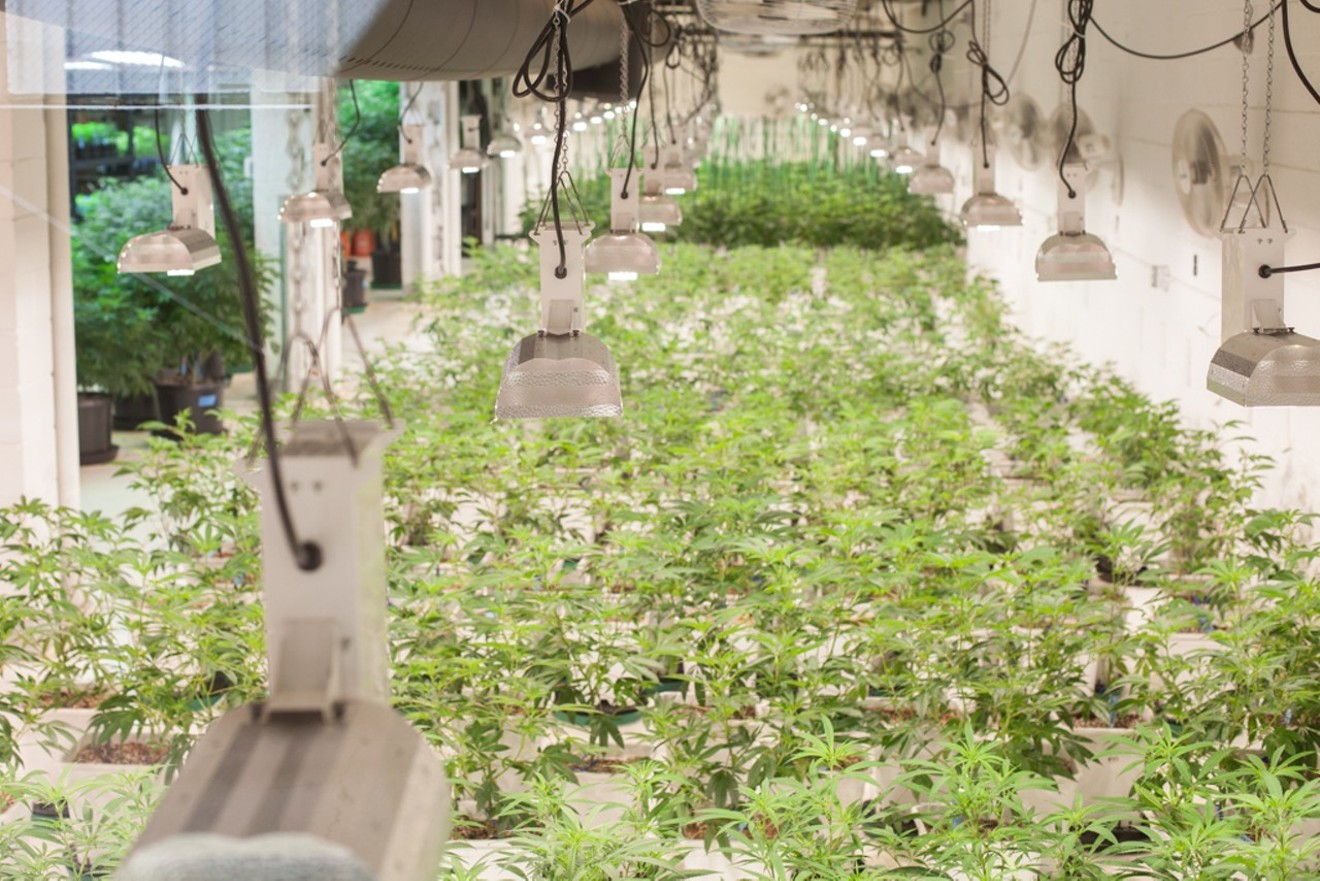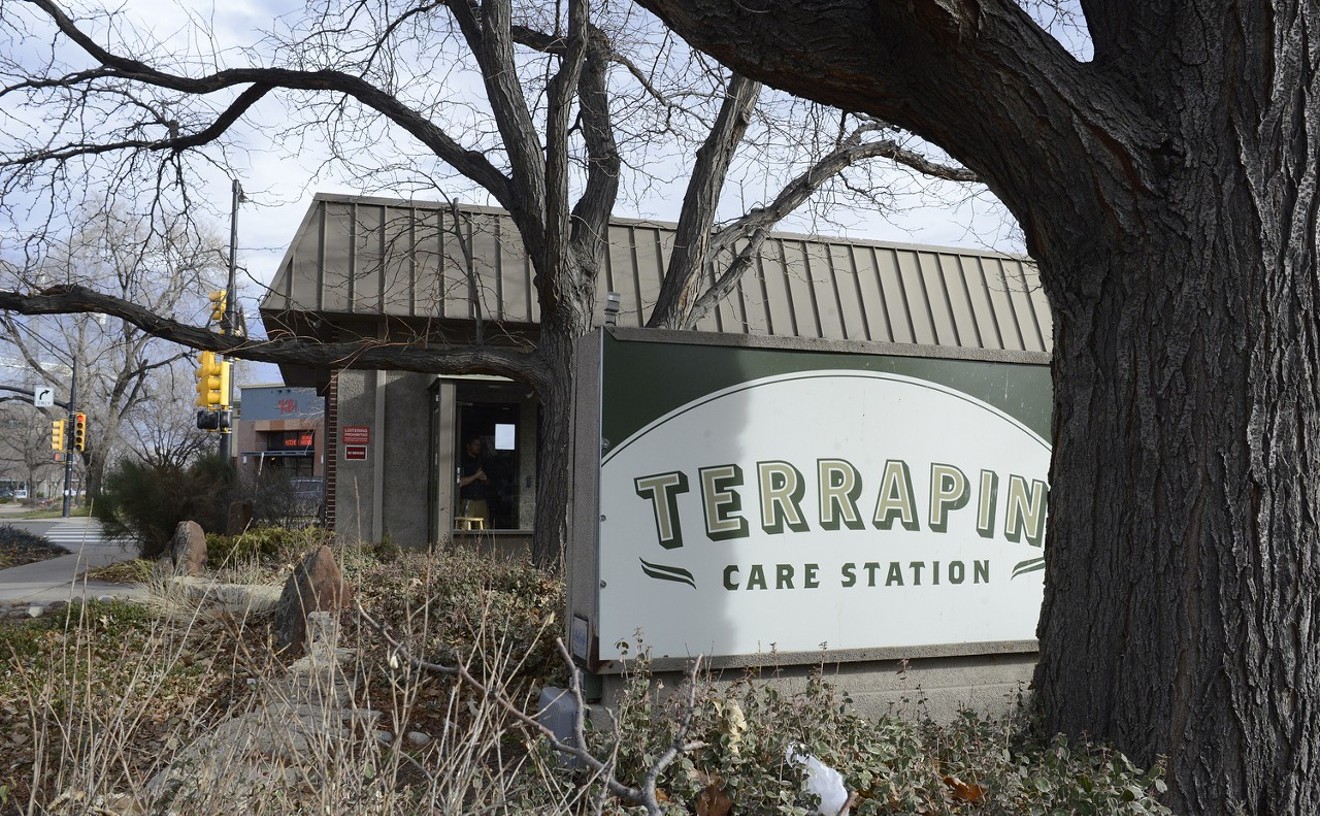While bills calling for commercial marijuana delivery and social pot use licenses are getting most of the attention at the State Capitol, another measure could bring dozens of changes and add new rules for Colorado's marijuana industry.
The state's current medical and recreational marijuana laws are set to sunset in September of this year, so lawmakers have been reviewing the laws and regulations regarding the pot industry and personal use, and packaging proposed changes into Senate Bill 224. And there could be more changes to come as amendments are made to the 259-page proposal.
Jordan Wellington, a marijuana attorney for Denver firm Vicente Sederberg, doesn't see the sunset measure as particularly dramatic at the moment, but he says he wouldn't be surprised if future amendments spice things up. The bill was introduced on March 29 and is scheduled for its first Senate committee vote on April 9. With the next marijuana sunset a decade away, SB 224 could have long-term effects on all aspects of the cannabis industry, including hemp.
"There's a lot of discussion around the Capitol for potential amendments to this legislation, but I think we'll see more as we get closer to hearings and putting this bill forward," Wellington explains. "I think it's reasonable to think that we'll see some stakeholders push amendments at some point."
In the meantime, here's a list of anticipated changes based on the bill's language and recommendations from the state Department of Revenue, which oversees much of the marijuana business.
Background checks
Current state law bans anyone from becoming a licensed marijuana employee if they were convicted of any felony within the past five years, or of a drug felony within the past ten years. Marijuana and minority advocates say this excludes certain demographics unfairly affected by the War on Drugs, and have pushed for fewer entry barriers in the industry. These changes would remove the special drug-felon ban and cut the five-year ban for felons to three years.
Selling hemp and CBD in recreational dispensaries
Although the current medical marijuana code allows medical dispensaries to sell hemp and CBD products with no THC, recreational pot shops are banned from selling anything consumable without some THC in it. As the hemp and CBD industries continue to grow in Colorado, this change would allow recreational dispensaries to sell hemp and CBD products that contain no THC.
Testing hemp
The state constitution currently does not include industrial hemp in the definition of retail or medical marijuana, so hemp does not face the same pesticide and microbial testing standards as marijuana products in dispensaries. If dispensaries want to start selling hemp and hemp-derived CBD products, they could only use hemp that was in the state's marijuana seed-to-sale tracking system and tested under the same requirements as THC plants.
Medical possession equivalency
Recreational marijuana users can possess up to one ounce of marijuana; until recently, that ounce of "marijuana" could've meant an ounce of concentrates or edibles containing an ounce of THC. That definition has since been changed to allow users to posses one ounce of cannabis flower, or 8 grams of concentrate or edibles with up to 800 milligrams of THC.
However, medical marijuana users, who can possess up to two ounces of marijuana, are still allowed to carry or purchase two ounces of concentrates or THC in infused products. This suggested changed would create equivalency standards for patients, but those new limits have yet to be defined.
Merging medical and retail marijuana codes
Medical and recreational marijuana currently operate under a similar but different set of rules in Colorado, causing a lot more work for business owners and government. There are also several instances where the rules don't line up, such as product-testing requirements. SB 224 would merge the codes but still retain some differences, such as higher potency limits and lower sales-tax rates for MMJ compared to recreational pot.
Medical marijuana application
Patients who apply for a medical marijuana card but have yet to receive an application can currently present a copy of their application and a certified mail return receipt (after sending their application to the Colorado Department of Public Health and Environment) to purchase MMJ. With the CDPHE's switch to electronic MMJ cards, though, the requirement for a mail receipt became outdated and unnecessary, so patients would no longer need to provide it when visiting dispensaries. That's perhaps the least controversial bit of housecleaning in this update of the current laes.
[
{
"name": "Air - MediumRectangle - Inline Content - Mobile Display Size",
"component": "12017618",
"insertPoint": "2",
"requiredCountToDisplay": "2"
},{
"name": "Editor Picks",
"component": "17242653",
"insertPoint": "4",
"requiredCountToDisplay": "1"
},{
"name": "Inline Links",
"component": "18838239",
"insertPoint": "8th",
"startingPoint": 8,
"requiredCountToDisplay": "7",
"maxInsertions": 25
},{
"name": "Air - MediumRectangle - Combo - Inline Content",
"component": "17261320",
"insertPoint": "8th",
"startingPoint": 8,
"requiredCountToDisplay": "7",
"maxInsertions": 25
},{
"name": "Inline Links",
"component": "18838239",
"insertPoint": "8th",
"startingPoint": 12,
"requiredCountToDisplay": "11",
"maxInsertions": 25
},{
"name": "Air - Leaderboard Tower - Combo - Inline Content",
"component": "17261321",
"insertPoint": "8th",
"startingPoint": 12,
"requiredCountToDisplay": "11",
"maxInsertions": 25
}
]












